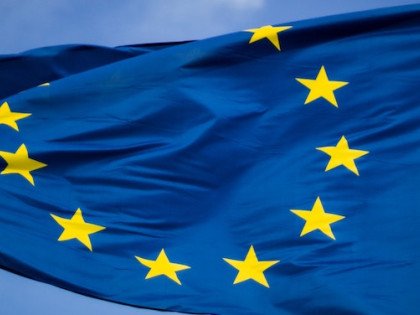The Conservative government are looking to vaping to help plug holes in its finances. Ministers more concerned with revenue than the health of the voting public have spoken about implementing a ‘sin tax’ on vapers.
Currently, vaping liquids and devices don’t carry any tax except VAT, but this could all change as they see the vaping community as a viable source for a cash grab.
Someone informed the media that vapers “typically go through one 10ml bottle a week”. This came as news to people attending this weekend’s Vapefest. Which they claim means we spend £275 a year on juices. This woefully underestimates individual expenditure according to several vapers we spoke to.
The Chancellor is looking to placing a 5% additional tax on eliquids.
Dan Marchant runs the popular Vape Club online website. He is quoted as saying: “Vaping is a huge public health opportunity which has already helped three million smokers quit or reduce smoking and saved the NHS billions of pounds according to the Government’s own research. For the Treasury to impose yet another tax on vaping, not only wouldn’t make sense, but it would be detrimental to the NHS and public health in the UK.”
Vicky Foxcroft, Labour MP for Lewisham Deptford, happens to be a vaper. She was stunned that the government intended to penalise people trying to use nicotine in a safer fashion: “Vaping is one of the best ways of people giving up smoking. The government must do more to research it and possibly give them out free on the NHS. It could save money on cancer treatment etc., so obviously I don’t think taxing is a good idea.”
Carl Phillips produced a paper for the Institute of Economic Affairs in 2016 on the benefits of minimising taxes on harm reduction products like vaping equipment. In it, he wrote: “For any remotely defensible goal, including minimising population health risk, the optimal level of excise tax on low-risk products is zero (assuming that is the lower bound; a subsidy would be better still).”
The New Nicotine Alliance’s chair Sarah Jakes commented: “E-cigarettes are a proven safer alternative to smoking and the UK boasts 1.5 million former smokers who have converted from combustible tobacco to exclusively vaping instead. Applying a so-called ‘sin tax’ is completely inappropriate for products which have a successful track record of diverting smokers away from combustible tobacco. Switching from smoking to vaping is not ‘sinning’, it is the exact opposite.”
“Vaping has been the catalyst for a dramatic decline in smoking prevalence in recent years. It is, therefore, highly unethical for government to then financially punish vapers, especially since public health campaigns like Stoptober actively encourage the use of e-cigarettes,” she continued.
“The UK is regarded worldwide as a global leader in tobacco harm reduction and the results speak for themselves”, said Jakes, “however public perception of the benefits of vaping has stalled. Applying a tax can only further degrade general misperceptions by implying that vaping is a ‘sin’ and therefore dangerous. A new tax on vaping products would be unethical, sends entirely the wrong message to smokers, is at odds with current government policy, and would be a retrograde step for public health. It is a daft idea and one which we urge the Treasury to abandon immediately.”
The UK Vaping Industry Association lambasted the proposal as “ludicrous”. In a press release, the UKVIA released details of the points it has made to the Treasury in a letter:
1. Vaping saves the NHS money. The public health community in the UK, and indeed the Government’s own Tobacco Control Plan, is clear that vaping is a significant public health opportunity that could help millions of smokers reduce or stop smoking. Indeed, far from being a ‘sin’, vaping is an opportunity to not only improve public health but to save money for the NHS.
Action on Smoking and Health has found that, of the nearly three million vapers in the UK, over half have given up smoking, and that 97% of vapers are either smokers or ex-smokers. According to NHS England, smoking costs the NHS £2.5billion a year; with a wider cost to society of £14.7billion per year. The MHRA also value the health gains associated with a single successful quit attempt at £74,000 per individual. Therefore, the figures suggest that vaping has already saved the NHS and society as a whole millions of pounds.
2. Vaping is a consumer driven industry that does not cost the NHS money to prescribe. Vaping products are purchased directly by consumers looking to stop smoking and are not prescribed by the NHS. This contrasts sharply with nicotine replacement therapies (NRT) which at their peak cost the NHS over £65million a year. The cost of NRT products to the NHS has fallen sharply in recent years, coinciding with the rise of vaping as a smoking cessation tool.
It is also worth noting that licensed NRT products receive a reduction in VAT, whereas vaping products are currently taxed at the full VAT rate of 20%. This is despite evidence demonstrating that vaping is at least as effective as a smoking cessation tool as NRT products.
3. Increasing the cost of vaping will deter smokers. It is crucial that regulatory and taxation policies continue to support vaping products, including ensuring the price of vaping products remains attractively lower than cigarettes to encourage smokers to switch. There is extensive evidence, including consumer research we have conducted ourselves, demonstrating that the lower price of vaping products versus cigarettes is one of the key factors convincing smokers to make the switch to vaping and that raising the price of vaping products would lead to a dramatic reduction in smokers switching.
4. The vaping industry already contributes significantly to the economy. As referred to above, vaping products are subject to the full rate of VAT. In addition, as one of the fastest growing consumer industries in the UK, the vaping industry is responsible for creating thousands of new jobs. This includes jobs in the retail sector but also in research, manufacturing and compliance. The government should support the further growth of the industry, rather than impose additional tax burdens.
If you would like to discuss this issue further, the thread on the POTV forum can be found here: https://www.planetofthevapes.co.uk/forums/ecig-discussion/general-chat/threads/vape-sin-tax.166417/
Dave Cross
Journalist at POTVDave is a freelance writer; with articles on music, motorbikes, football, pop-science, vaping and tobacco harm reduction in Sounds, Melody Maker, UBG, AWoL, Bike, When Saturday Comes, Vape News Magazine, and syndicated across the Johnston Press group. He was published in an anthology of “Greatest Football Writing”, but still believes this was a mistake. Dave contributes sketches to comedy shows and used to co-host a radio sketch show. He’s worked with numerous start-ups to develop content for their websites.
Join the discussion
EU Commission Called Out
The World Vapers' Alliance calls out the EU Commission's hostile stance on Tobacco Harm Reduction in light of Tobacco Product Directive consultation findings
WHO HIGHLIGHTS SWEDISH SUCCESS
A major new report from the World Health Organization (WHO) highlights Sweden’s success in going smoke-free with the help of less harmful cigarette alternatives
MEPs Want Integrated EU Strategy
MEPs propose actions to prevent and lower the prevalence of non-communicable diseases in the EU, in order to reduce the burden on healthcare systems and on citizens’ quality of life
Report Raises Concerns About EU Transparency
A recent report raises concerns about the EU’s approach to transparency and inclusivity as member states challenge the Commission's stance on tobacco control











